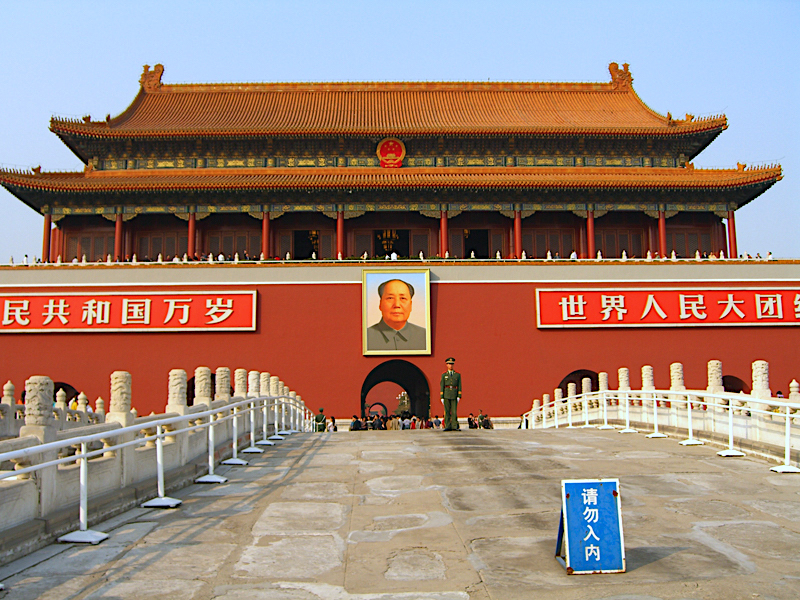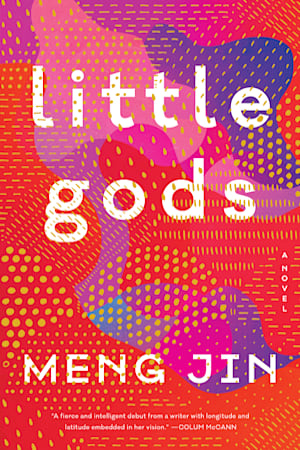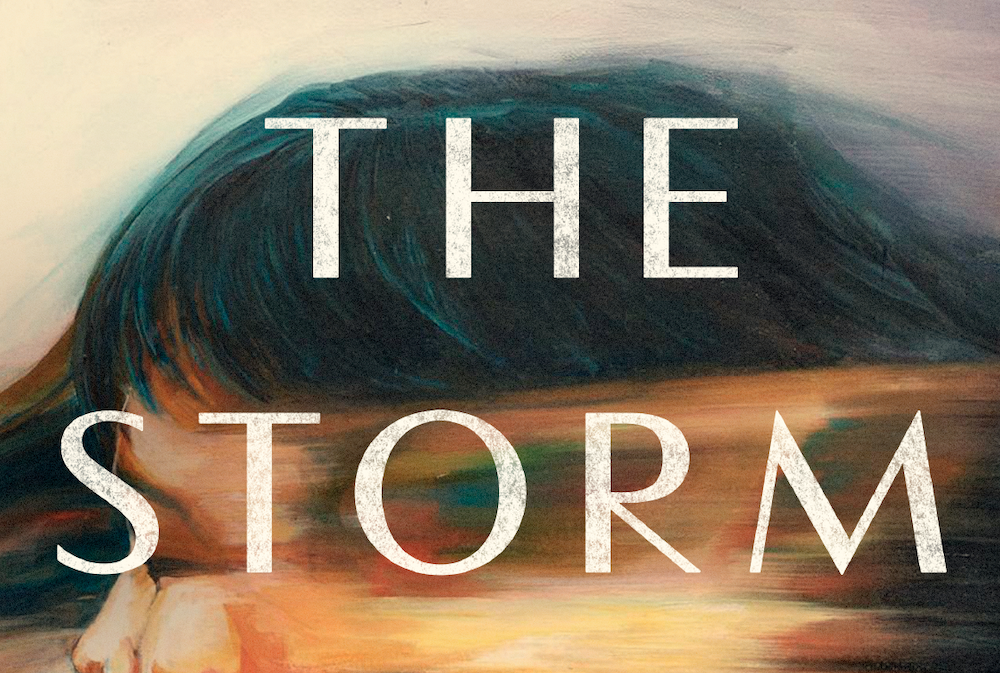Interviews
A Daughter Returns to Her Homeland to Search For Truth
Meng Jin, author of "Little Gods," on motherhood, immigration, and running away from the past

In Meng Jin’s debut novel, Little Gods, a baby girl is born on June 4, 1989, the night the Chinese government massacred pro-democracy protestors in Tiananmen Square. The girl Liya grows up displaced in America with her mysterious mother, Su Lan, a physicist on the run from her past and the “mind’s arrow of time.”
Upon Su Lan’s death, it falls on her daughter Liya to fill the gaping absences. Liya takes Su Lan’s ashes to China and begins her journey back in time. By weaving of Liya’s story, along with the trajectories of Su Lan, Yongzong, Zhu Wen, as well as that of the nurse in the maternity ward in which Liya was born, and Zhang Bo, a college friend of Su Lan, with the Tiananmen uprising, Meng Jin offers an intimate, fractured family story on the epic canvasses of China’s recent history and endless psychic back-and-forths of immigration to America.
The novel’s frame is physics, and theories of time and relativity, which Su Lan works on throughout most of her life. Meng Jin renders this with ease that certainly intrigued (rather than intimidated) me. I spoke to her about revolution PoVs, inspirations for a cad, and the possibilities of running from time.
JR Ramakrishnan: In the first pages, I was intensely startled by the nurse’s revelation (so casual, so very brutal) that she’d stoned a teacher to death in her youth. The nurse is part of your novel’s origin moment. She encounters a distraught Su Lan briefly on the night of Liya’s birth, which is also the night the Chinese government put down the Tiananmen protests. Why did you decide to start the novel with this character?
Meng Jin: I wanted to start the novel with Liya’s birth on the night of June 4th, and I’d tried writing some version of that scene many times to no success. There exists so much in the popular imagination already about June 4th, and I didn’t want to replicate the tone or content of anything that was already out there. I also wanted to start the novel quietly (believe it or not), which is hard when what’s happening in terms of plot is so loud and dramatic. Not to mention that birth is such an inherently dramatic event. So I started looking away from my central characters for a more stealthy entry into the story, and that was when I found the nurse.
The first pages of a novel should teach the reader how to read the rest. I’d already envisioned the central character, Su Lan, as an intentional absence in the book, so starting with this omniscient eye that circled and circled until it landed on a minor figure standing (walking, actually) at the periphery made instinctual sense. So too with her casual, brutal revelation. I actually remember bringing this to workshop and being told that I couldn’t just drop a bombshell like that in passing, that it had to be a story in itself. But it was one thing I refused to change through many subsequent drafts. I thought of it as an early signpost to the reader of how I would treat History with a capital H in the rest of the novel, as filtered first and foremost through an individual’s consciousness, rather than some larger, more significant story to which the individual was subservient.
JRR: The nurse also lays out the title and her thoughts about revolution: “What did it boil down to but children, giddy with breaking the rules!” This sense of political disenchantment extends to Su Lan, who you tell us later via Yongzong, distrusts collectivity, and ignores the whole Tiananmen uprising. Would you talk a little bit about the nurse’s perspective? It was interesting to consider her take on youth and revolution in light of the protests in Hong Kong last year.
I wanted to explore how a story that looks morally clear on the surface gets ambiguous when you start looking at individual human beings.
MJ: The nurse’s perspective of the 1989 democracy movement is deeply inflected by her own experience in the Cultural Revolution. She looks at the protesters and sees herself—her own past, her own mistakes—more than what is actually going on. There is a moment later in the scene, when she’s looking directly into the faces of the wounded, when her sight snaps and she realizes her perception may not be perfectly true. As for a person like Su Lan (and the nurse, and also Zhu Wen), she’s distrustful of notions of collectivity because she’s never felt welcome in a group: it’s a distrust that stems from deep insecurity. It makes sense that someone like Yongzong, who has always assumed his position in the center of a community or discourse, who has never doubted that the world had a place for him (the question only is where that place is), would take more enthusiastically to such collective movements.
As a fiction writer, I was interested in portraying these varying political attitudes—attitudes that perhaps are not the ones that seem most immediately obvious or germane in a sociopolitical context—because I wanted to explore how a story that may look quite morally clear on the surface gets ambiguous very quickly when you start looking at individual human beings. I think this is true for anything that appears morally clear—a sad fact that national and international current events, unfortunately, reminds us of every day.
JRR: Why multiple PoVs and why these ones in particular? From the nurse, you go to Zhu Wen, who was the nanny to baby Liya, addressing the adult Liya and then on to the character of Yongzong, her disappeared father, and the grown-up Liya in first person in China with her mother. Su Lan’s ashes. Was Zhang Bo considered? He witnesses a lot of Su Lan life and intellect, no?
MJ: The true answer to this question is it just shook out that way. Writing a novel is a long, mysterious, and (for me) very difficult process, and sometimes you just do the thing that feels right, that makes the story you want to tell click into place. I never considered Zhang Bo, perhaps because he appeared later in the writing process. But even now when I consider what his perspective might add, I don’t think it would enrich the story. In narrating Su Lan through the eyes of others, I was really interested in eyes that would offer a distortion or filter, that the telling would illuminate the narrator as much as the object of narration. Zhang Bo’s vision of Su Lan might be boring precisely because he loves her and knows her so wholesomely. Also, as you may have noticed, I’m quite brutal to my characters, and Zhang Bo is such a good guy – I liked him too much to subject him to my eye. Leave him alone, was probably what my subconscious said.
JRR: I thought you made the character of Liya’s father and Su Lan’s husband, Yongzong such a perfect and terrible cad. Such an incredible job in crafting the mystery of him (and the force of the novel’s movement) in the book! What or who was the inspiration for this character?
MJ: “A perfect and terrible cad”—I love that and am stealing it for all future descriptions of this character! He was his own inspiration, really. I started writing him after I already knew what he had done, which, not to spoil anything, was quite damning. The challenge was to write a terrible guy who was very invested in believing that he was a good guy, and in telling himself a story in which this self-image doesn’t totally disintegrate. I think that’s where the mystery comes from: he doesn’t know himself—he refuses to know himself—and by the end, the reader surpasses him in knowledge of who he is.
There were certainly other literary voices knocking around in the back of my head as I wrote his section, however. Specifically, tonally: the blinkered, eerily calm narrators of Chang Rae Lee’s A Gesture Life and Kazuo Ishiguro’s The Remains of the Day. But also, more generally, all the tortured male narrators in the canon of literature who treat women terribly for the sake of their own self-realization (though often the point of those stories was not to expose their myopia, I always read them as such). Yongzong’s section was easy to write. There are a lot of examples of terrible cads in our beloved literature.
JRR: So much to ask about time in the novel! Su Lan is a physicist who worked on her theory of time. I appreciated Zhu Wen’s rendition of it: “Light could travel only through space, she said, not time, and if we could travel as fast as light, time would cease to exist for us too.” You seem to have translated and distilled the physics with such clarity for lay people throughout the novel. How did you consider the science (as well as the history of science, as Su Lan mentions Einstein’s personal life in her letters) for the thematic frame of the book? How much research was involved?
MJ: The physics research was pretty organic. I was reading popular physics books for pleasure, and I found some of the concepts so beautiful and moving that I wanted to write about them myself. I’m a lay person too—90% of the content of these books went over my head—so the process of writing about them was also a way to distill and explain them to myself. In general, I’m a big fan of simplicity, and I think my greatest pitfall as a writer is a tendency to overcomplicate, in language and form and content. I dream of making something so simple, so elegant, you barely notice it was made.
I dream of making something so simple, so elegant, you barely notice it was made.
As for the frame of the book: I always knew that Su Lan was a woman scientist of some sort, because I wanted to write about a woman scientist, and also because it made sense for her immigration timeline. Once I tried making her a physicist, I realized that the metaphoric possibilities opened by her scientific interests seemed to lock hands with and amplify the other themes I wanted to explore in the book: loss, longing, the passage of time.
JRR: Although not a physicist himself (but a doctor who later becomes a literary translator) Yongzong expresses similar sentiments around time when he goes to his hometown without going to see his parents: “Perhaps this was the first time I realized how simple it was to act as if certain parts of the past did not exist.” Those first few words are chilling in light of what happens in the novel–I won’t spoil the surprise for future readers but I was certainly floored by your twist. It seems to me that Yongzong is the only person in the book who escapes the past. Would you say this is true, and perhaps discuss this shared escapism of Su Lan and Yongzong?
MJ: Yes! That is exactly right, and that ability to successfully escape the past is exactly what attracts Su Lan to Yongzong. She wants to be as ruthless as he is, she wants to be able to shrug off everything but her own vision of her future. But partly because of the conditions of her life (conditions that Yongzong will cement with his ruthlessness), partly because of who she is, she cannot.
In a later scene, when Yongzong takes Su Lan to meet his parents, he begins to invent a story about the two of them, and she goes along with it, nonplussed. In that scene I imagine Su Lan feeling exhilarated, almost ecstatic—he’s sharing his ease with her—but at the same time, she is very viscerally disgusted. She finds the ease of his total self-concern repulsive—and yet she envies it.
JRR: Liya’s parents are very far from being exemplary as parents. Have your own parents read the novel, and what do they think of it?
MJ: Well, maybe Liya’s parents aren’t exemplary by certain contemporary standards. But what is the measure of good parenting? Liya turns out okay, doesn’t she?
My father has read the book: he was surprised. Like many readers who aren’t writers, he’d assumed that the book would be largely autobiographical and was surprised at how much I had made up.









